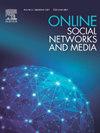评估生成代理在众包事实核查中的潜力
IF 2.9
Q1 Social Sciences
引用次数: 0
摘要
随着网上错误信息的日益传播,人们迫切需要可扩展的、可靠的事实核查解决方案。众包事实核查——由非专家评估声称的真实性——提供了一种成本效益高的替代专家验证的方法,尽管人们担心质量的可变性和偏见。受到某些情况下有希望的结果的鼓舞,X(以前的Twitter)、Facebook和Instagram等主要平台已经开始从集中式审核转向分散的、基于人群的方式。与此同时,大型语言模型(llm)的进步在核心事实检查任务(包括索赔检测和证据评估)中表现出了强大的性能。然而,它们在众包工作流中的潜在作用仍未被探索。本文研究了llm驱动的生成代理(模仿人类行为和决策的自主实体)是否可以有意地为传统上为人类群体保留的事实检查任务做出贡献。使用La Barbera等人(2024)的协议,我们模拟了具有不同人口统计和意识形态特征的生成代理群体。代理人检索证据,沿着多个质量维度评估索赔,并发布最终的准确性判断。我们的研究结果表明,智能体群体在真实性分类方面优于人类群体,表现出更高的内部一致性,并且对社会和认知偏见的敏感性降低。与人类相比,智能体更系统地依赖于信息标准,如准确性、精度和信息性,这表明决策过程更加结构化。总的来说,我们的研究结果突出了生成代理作为基于人群的事实核查系统中可扩展、一致和较少偏见的贡献者的潜力。本文章由计算机程序翻译,如有差异,请以英文原文为准。
Assessing the potential of generative agents in crowdsourced fact-checking
The growing spread of online misinformation has created an urgent need for scalable, reliable fact-checking solutions. Crowdsourced fact-checking—where non-experts evaluate claim veracity—offers a cost-effective alternative to expert verification, despite concerns about variability in quality and bias. Encouraged by promising results in certain contexts, major platforms such as X (formerly Twitter), Facebook, and Instagram have begun shifting from centralized moderation to decentralized, crowd-based approaches.
In parallel, advances in Large Language Models (LLMs) have shown strong performance across core fact-checking tasks, including claim detection and evidence evaluation. However, their potential role in crowdsourced workflows remains unexplored. This paper investigates whether LLM-powered generative agents—autonomous entities that emulate human behavior and decision-making—can meaningfully contribute to fact-checking tasks traditionally reserved for human crowds.
Using the protocol of La Barbera et al. (2024), we simulate crowds of generative agents with diverse demographic and ideological profiles. Agents retrieve evidence, assess claims along multiple quality dimensions, and issue final veracity judgments. Our results show that agent crowds outperform human crowds in truthfulness classification, exhibit higher internal consistency, and show reduced susceptibility to social and cognitive biases. Compared to humans, agents rely more systematically on informative criteria such as Accuracy, Precision, and Informativeness, suggesting a more structured decision-making process. Overall, our findings highlight the potential of generative agents as scalable, consistent, and less biased contributors to crowd-based fact-checking systems.
求助全文
通过发布文献求助,成功后即可免费获取论文全文。
去求助
来源期刊

Online Social Networks and Media
Social Sciences-Communication
CiteScore
10.60
自引率
0.00%
发文量
32
审稿时长
44 days
 求助内容:
求助内容: 应助结果提醒方式:
应助结果提醒方式:


